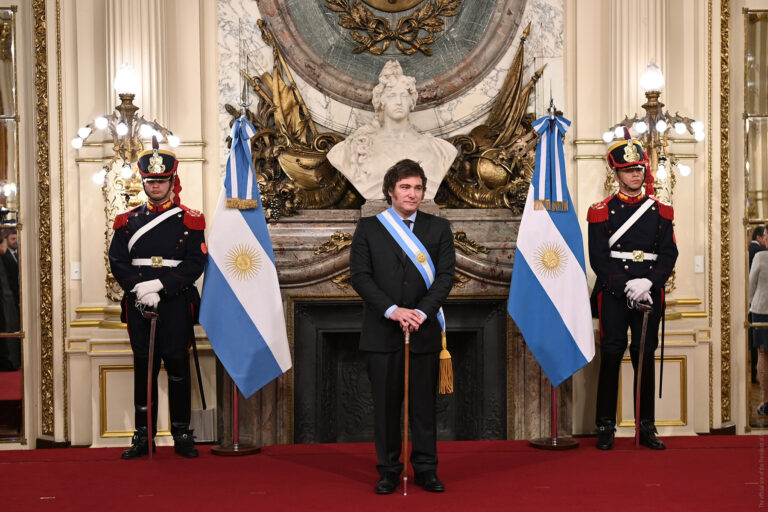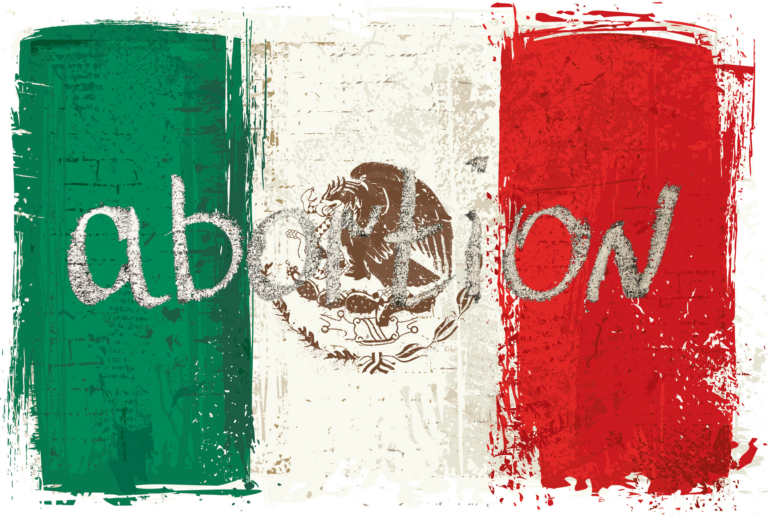Testimonies presented at the Philippine Conference on Population and Sustainable Development: Antonio B. de los Reyes, former Executive Director of the Philippine Population Commission, is presently serving as president of the Council of the Laity of the Philippines. Dr. Delfin J. Ganapin, Jr., is coordinator of the “Philippine Federation for Environmental Concerns.”
Prologue
State imposed population control policy is the “Jagannatha” of the new world order, the “lord of the world,” designed to haul both developed and developing nations into a utopia of unlimited human perfection and economic expansion. Like the ancient god, the contemporary idol exacts blind devotion and terrible sacrifice. And like the ancient worshipers, contemporary industrial nations have thrown themselves under the idol’s wheels to be crushed by youth deficits and aging populations.
The burgeoning population growth of Third World nations has become a threat to the maintenance of the political/economic status quo among world industrialized powers. The threat entails access to Third World resources and the emergence of Third World demands for economic equity.
In the face of these contemporary political/economic pressures it makes perfect strategic sense to eliminate half the people of the world in order to make the other half happy. It does not make sense however to some within the countries targeted by the “Jagannatha.” The Philippines is one of the targeted countries.
A solid core of resistance to population control exists within the family-oriented, ethical strongholds of Islam and Catholicism. PRI Review has previously documented attempts by the United States Agency for International Development (USA- ID) to redefine Islamic religious beliefs in order to incorporate population control policies in Islamic societies (“Islam and Family Planning,” PRI Review, Vol. 2, No. 4, July/August 1992).
This PRI Review issue reports the marked resistance of Philippine Catholics at a 1991 government-sponsored conference “On Population and Sustainable Development” in the Philippines.
The response of Antonio B. de los Reyes to the government rationale establishes Catholic theological grounds for resistance. In his response, Dr. Delfin J. Ganapin, Jr. argues against the major scientific theories linking population reduction and sustainable development. He also challenges the moral validity of government-structured “choices.”
Response of Antonio B. de los Reyes
Early in my service as Executive Director of the Population Commission, I issued a strong statement advocating the three-child family norm; and yet I myself had four children and was disturbed about my own example. Less than a month after that statement, my 10-year-old daughter, Maricris, was killed, and I was left with 3. The day after my dead daughter was buried, I immediately left for Davao to do work for the program with the outreach structure there. That was how devoted I was to my work. Since then, my beliefs have changed, because my perspectives have radically altered. The principles and reflections I will present mirror the faith that was always there, which (or Whom) I came to rediscover.
The first principle is that human life is distinct and of an infinitely higher order than plant or animal life. We believe that human life is eternal, its source and substance being the life of God. Man must observe prudent stewardship of the earth and its fullness because they are creations of God and belong to the Creator. All forms of life, including our human bodies, are owned by God, Human life is a share of God’s life, a share of His very person, and thus is held sacred.
The second principle is that only God — neither society nor the individual — may determine its emergence into, and dissolution from, the temporal order. The event ordained by God for this emergence into the temporal order is birth; the event for dissolution is death. The process ordained by God for both birth and death is the natural law, from which the natural biological processes flow. Neither birth nor death is to be determined or regulated by man alone. In both, man merely ministers to the work of God and sacrificial love is the operative dynamic. The process of man’s ministry in birth (as in death) must be ruled by love, or in our terms, by the moral law. This love, originating from God, is nurtured in the family, that is, in conjugal, parental and sibling love. It moves into community and then radiates out-ward to society and the world. But sacrificial love is the principle, ordained by God and enfleshed in Christ, which governs man’s relationship with man.
A third principle drawn from our faith is that human life in any form is sacred. Form is a temporal condition; substance is a spiritual condition. Form is the outcome of external or transitory factors; substance is intrinsic and unchanging. Although God wills for man collectively and individually the fullness of life, temporal conditions and forces may not conform with God’s will. Thus poverty or disease are transitory conditions which are not in consonance with God’s will or plan for man. Often these are caused by human action or inaction, or by random occurrence; their effects can therefore be changed or affected also by human action, at times inspired by God. Life is irreplaceable because it is God-given and a person’s passage to eternal life.
Response of Dr. Delfin J. Ganapin, Jr.
I cannot agree that the increase in the number of persons born into society, in itself, will have a detrimental effect to society in general and to sustainable development capacity in particular. This is an underlying assumption of the entire national program. As early as 1986, the United States Academy of Sciences had already rejected the proposals of Malthusianism, finally reversing its 15-year-old advocacy of the claim that population increase exhausts natural resources.
[Government assumptions] gratuitously postulate that population and sustainable development have a “synergistic relationship” but neither describes nor proves this synergism in any convincing way. The description of the conditions in upland, coastal and urban areas points more towards congestion and pollution rather than natural increase as its cause. It seems to assume, but again does not proceed to demonstrate, that population growth is the root problem of sustainable development.
In fact, the consensus in world conferences and summits including the Human Rights Declaration of 1968, the Second World Population Conference of 1984, and the recently concluded Earth Summit of 1992, is that population growth is not the primary cause of underdevelopment. The fundamental causes derive from the dualism in the international economic and social order. Developed countries, with only 17 percent of the world’s population, consume 80 percent of the world’s resources and produce a corresponding percentage of the world’s pollutants.
Many of the real problems attributed to population are traceable not to size or natural increase, but to the absence or non-enforcement of policies for prudent and efficient spatial distribution of people among the regions. [T]he proposition [was advanced] that in an “imperfect” world where options are limited because social change is slow and costly, population increase created socio—political unrest, undermining sustainable development efforts. Reference [was made] to the “momentum” of the population problem…underscore[ing] the urgency for action.
The inability and the unwillingness of policy makers and governments to order socio-economic arrangements according to the tenets of social justice, constitute the dynamic which adversely affects sustainable development. To point one’s finger at the increase in population is to bark at the wrong tree; point rather at the ruthlessness and formidability of big business, the consumer system and the industrial complex. They are the over-consumers and the ravagers of the environment. Governments who fail to generate viable employment or livelihood or to provide basic services due to incompetence or corruption, opt instead for “population management” as a convenient ploy to obfuscate rational diagnosis of their inability or unwillingness to face the Goliaths of unbridled capitalism.
Another root cause allude[d] to is the socio-economic-political inequity which is systemically entrenched in less developed countries. It was said that “Structures of inequity…caused massive poverty,,,Poverty creates a sense of desperation that forces people to think of day-to-day survival, of immediate self and family.” But surely, much of this reaction of the poor and powerless is self-defense. Are we to fault the poor and powerless when, besieged by scarcity and greed and exploitation, they turn to nature for their survival? The truth of the matter is, that governments choose to make ‘population increase’ their ‘whipping boy,’ their ‘Judas goat,’ because this is less formidable, more convenient, and more bankable than going up against the vested interests of big business and power politics. The truth is that leaders in government have heavy debts to pay to the business and political elites, and are thus ‘in estoppel’ from dismantling that system which causes structures of inequity and massive poverty, because many of these leaders are instruments of that system.
We fully agree with the proposition that human society is capable through the use of technology and socio—economic arrangements such as sharing, abstinence, prudence, and recycling to “stretch carrying capacity.” The crude approach to “development” in the traditional “go for growth” sense which results in “win first, lose later” situations, especially in relation to the environment, is rightly critiqued. This shows agreement with our propositions that natural and moral laws (derivatives of spiritual laws) must govern the prescriptions of science and technology, including the technologies to discipline procreation.
The opportunistic use of artificial methods in family planning is a perverse interpretation of responsible parenthood. For if all are to be enjoined to respect the natural laws that govern ecology, logical consistency dictates that all be enjoined to respect the natural laws that govern biology and physiology, not to mention psychology. Artificial and mechanical interventions, such as chemical fertilizers, are no different from steroid contraceptives, intra-uterine devices, chemical implants and others which manipulate or violate natural processes.
The Catholic position on the population issue had been made definitive in the papal encyclical Humanae Vitae, reaffirmed in Familiaris Consortio and fully adopted in the Philippines in two pastoral letters of the Catholic Bishops conference of the Philippines. Yet, it was only after the promulgation of the Decrees of the Second Plenary council of the Philippines that the Church deliberately resolved to organize and intensify its teaching. Our people can now anticipate a more systematic and aggressive proclamation of the Church doctrine on responsible parenthood, and of our disagreement with the artificial contraceptive program actively sponsored by the government.
We believe that the Constitution of the Philippines is responsive to the principles on which our position is based. Our Constitution cannot, by its own logic, favor the active promotion of artificial contraception and sterilization by the State. We hold that the government must, if it is to respect the constitution, withdraw from the active and coercive marketing of contraceptives and implementation of fertility reduction programs. Rather, we maintain the government should concentrate on the pursuit of policies and programs which further social justice, equitable distribution of resources and income, and the implementation of authentic and total human development. We strongly advocate relegating the promotion of moans and methods for responsible parenthood to the private sector … Let the initiatives of associations and communities determine the choices their member individuals or families make for their own lives, according to their values and convictions.
The Catholic Church must exercise her prophetic role in deliberately choosing to become perhaps the last line of defense in favor of life in a world besieged so overwhelmingly by the anti—life culture. “I call heaven and earth today to witness against you: I have set before you life and death, the blessing and the curse. Choose life then, that you and your descendants may live, by loving the Lord, your God, heeding his voice and holding fast to him (Deuteronomy 30:19-20).
Permit me to conclude with a most relevant passage from a recent encyclical of Pope John Paul II, Redemptoris Missio (The Mission of Christ the Redeemer; December 1990): “The temptation today is to reduce Christianity to merely human wisdom, a pseudo-science of well-being …people strive for the good of man — but man who is truncated, reduced to his merely horizontal dimension. We know, however, that Jesus came to bring integral salvation, one which embraces the whole person and all mankind, and opens up the wondrous prospect of divine filiation…Newness of life in him is the ‘good news’ for men and women of every age: all are called to it and destined for it.”
Sustainable development cannot credibly uphold and defend the quality of life by frustrating or reducing the principle of life itself. Sustainable development, cannot advocate the enhancement of temporal life by proposing to diminish the value and import of spiritual life. For all life is one, and flows from its Creator, Who is God, and Who may also be called “Allah.”










